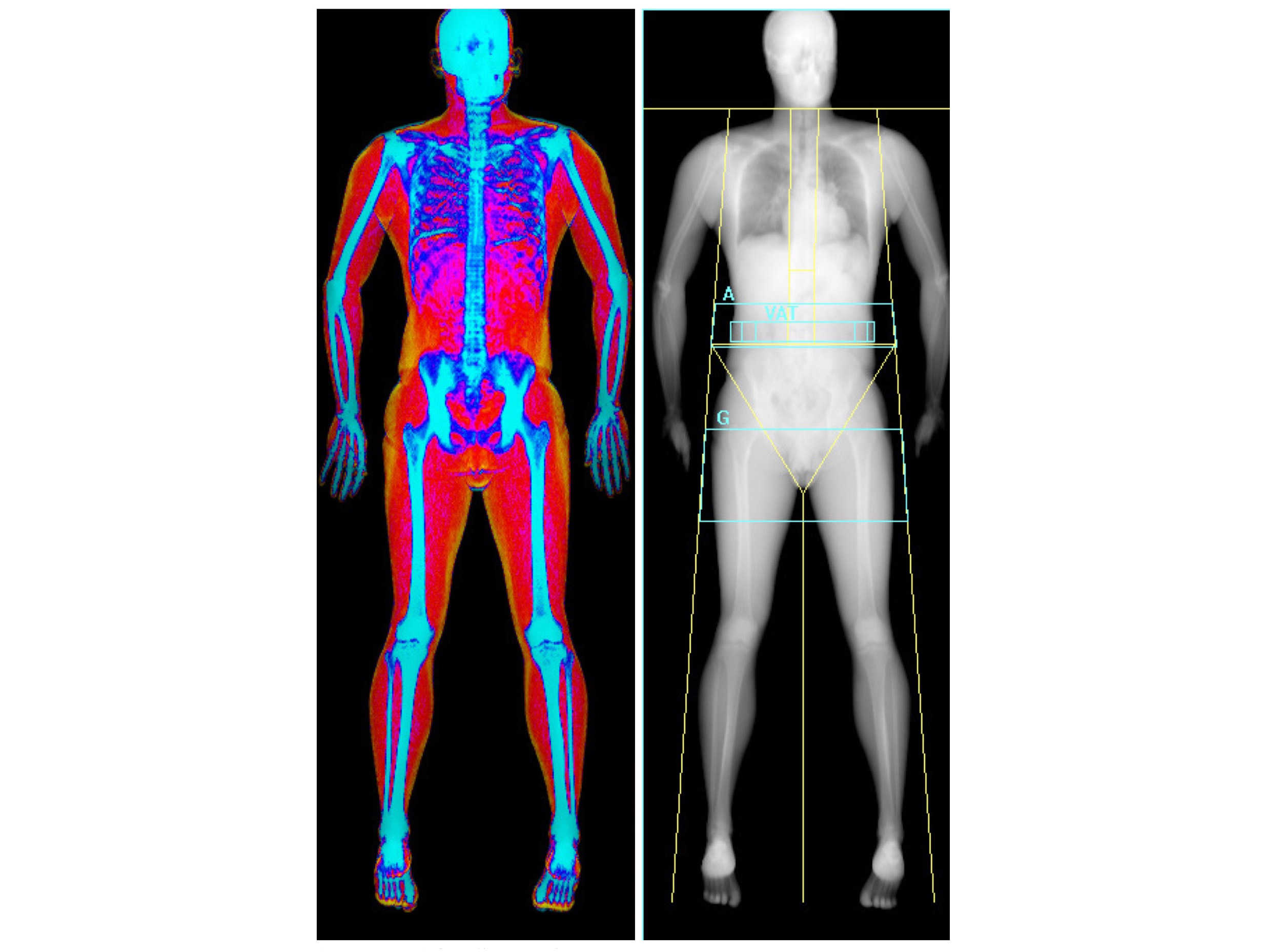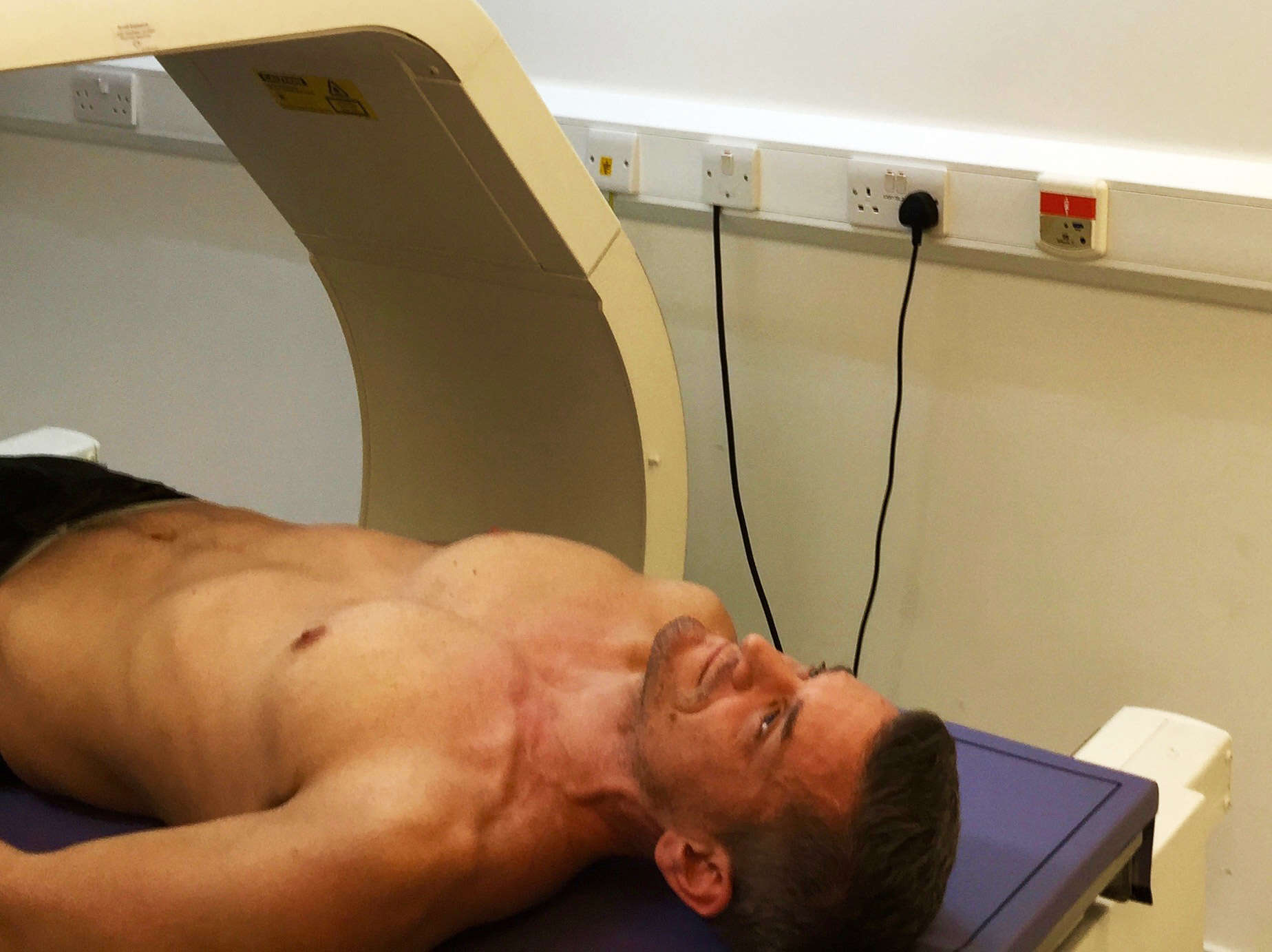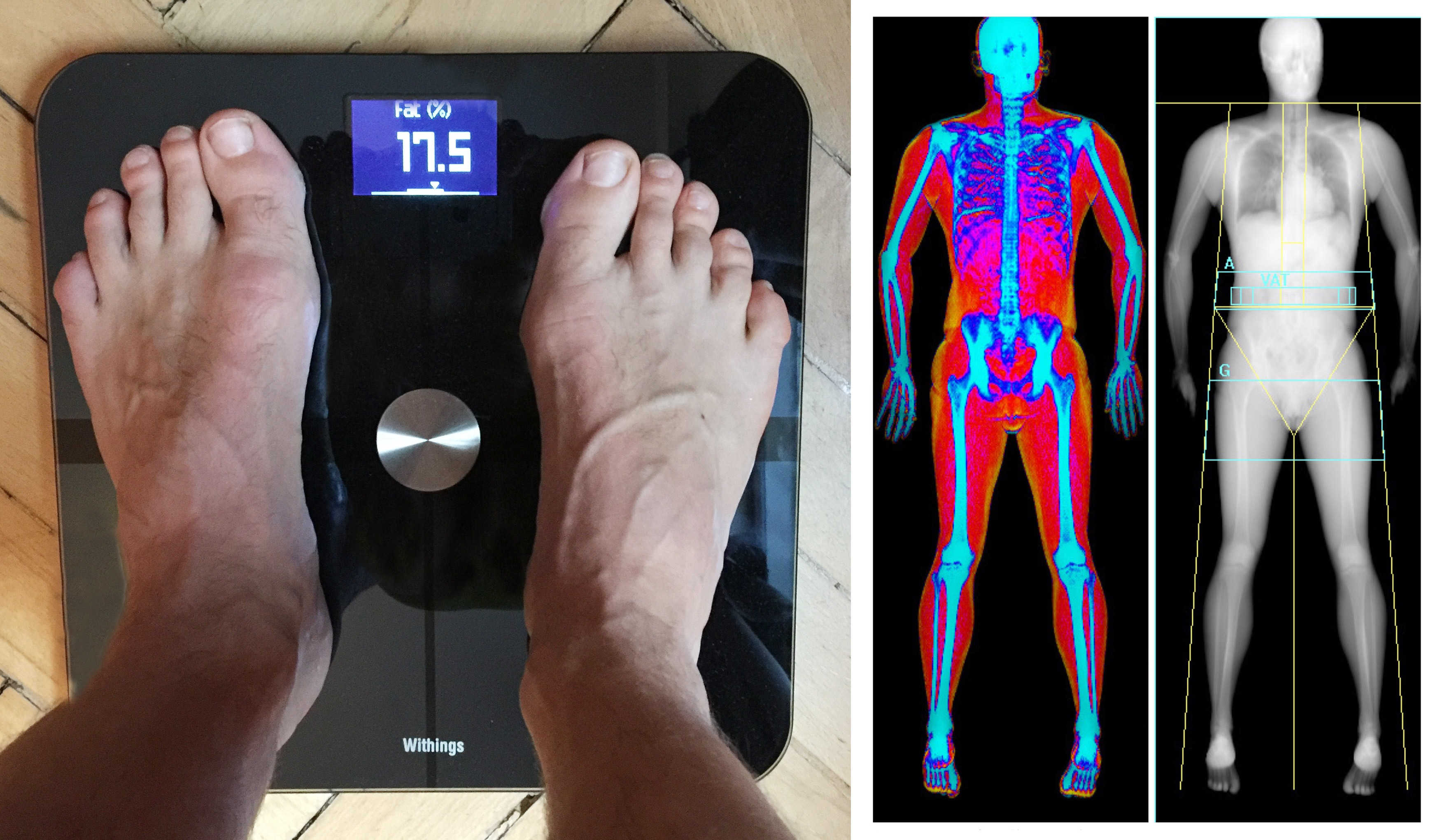If you want to lose weight, your Apple Watch can help you sustain healthy habits, but it can’t actually monitor your progress. For that you need to step onto scales.
Any scale will measure your weight, but that is only part of the story. Whether you are dieting or bulking up, it is just as important to keep track of your body fat. The trouble is, this is notoriously hard to measure accurately. As I discovered when I bought a new Withings Smart Body Analyzer, if you think you already know your body fat percentage, you are probably way off.
Scales that do the heavy lifting for you
I had been meaning to log my weight in the Health app on my iPhone for a long time. But it seemed like so much hassle that I never actually got around to it.
That’s why I bought a Withings Smart Body Analyzer. With built-in Wi-fi and Bluetooth, it is much more than just a bathroom scale. It automatically logs your weight via Apple’s HealthKit framework, so all you need to do is stand on the thing. That can’t be so hard.
This kind of elegant simplicity does not come cheap, though. My wallet was $150 lighter by the time I was ready to find out how heavy I was.
Why body fat matters
Withing calls this gadget a “body analyzer” because it does more than just weigh you. It also estimates your body fat percentage, which is the proportion of your body mass that is made up of fat.
When we say we want to lose weight, what most of us actually mean is that we want to lose body fat. Imagine you lost 20 pounds. You might be happy about this, but what if you had actually lost 30 pounds of muscle and put on 10 pounds of fat? Sure, you’d have lost 20 pounds, but you’d probably look and feel worse, not better.
That is why your body fat percentage is important. It reveals how the composition of your body is changing, rather than just giving you an overall total.
Looking inside your body is not that easy
The very best way to estimate your body fat is by post-mortem autopsy. The trouble is, that involves you not being alive, which sort of goes against the whole health and fitness vibe we’re on here.
Instead of slicing you open, the Withings Smart Body Analyzer attempts to electrocute you. Well, not really. But it does send an electrical current through your foot, up one leg and down the other, and back into the scale. It is a very low voltage, so you should not feel a thing. The amount of water in your body affects how much your cells resist the current passed through it. By estimating your total body water, these devices can infer your body fat percentage.
This method is known as measuring your bioelectrical impedance, and it is used by a variety of consumer gadgets for measuring body fat, including the Omron Fat Loss Monitor.
Everything I thought I knew about body fat was wrong
The trouble is, it is not always reliable. For example, since the Withings scale only connects with your feet, it is only measuring your lower body (which presumably means it estimates your upper-body composition based upon an average).
With all this in mind, I was not expecting much from the body fat-analysis feature. Sure enough, the reading I got seemed way off. It told me I was 18 percent body fat. I am actually very lean, with a defined six pack, visible muscle striation and vascularity. Most fitness professionals would tell you these are signs of 10 percent to 12 percent body fat.
After all my hard work getting in shape, I was almost offended by my new scale. Little did I know that everything I thought I knew about body fat was wrong.
Trying and failing to prove my smart scale is dumb
I was so sure that my scale was way off that I decided to go for a second opinion.
Bioelectrical impedance is used by most gadgets to estimate body fat because it is cheap and easy to administer. But there are other, more reliable, options like DEXA, a medical scanner originally developed for measuring bone density. DEXA uses X-rays to produce an image of your insides, broken down into fat, bone and lean mass.
I decided to give it a try.
You have not seen yourself truly naked until you’ve seen your DEXA scan

Photo: Graham Bower / Cult of Mac
Seeing yourself the way the DEXA machine sees you is a humbling and slightly unnerving experience. It leaves little to the imagination. Your love handles light up in bright orange for all to see. But the biggest shock came when the DEXA operator told me my body fat percentage: 18 percent.
He could see I was disappointed, and quickly reassured me that DEXA scans typically gave a result 5 percent to 7 percent higher than you get from the body caliper tests that are popular with personal trainers at the gym.
DEXA’s estimates are more accurate. It is just that the received wisdom on body fat percentages in the fitness industry have become skewed over the years.
Whether I liked it or not, I really was 18 percent body fat. But this still meant I was pretty slim — according to the DEXA report, 97 percent of guys my age have a higher percentage of body fat.
I was somewhat reassured by this, but now it was the DEXA guy’s turn to be crestfallen when I told him this result was exactly the same as the one I got from my bathroom scale at home.
He was genuinely surprised by this. He said bioelectrical impedance devices are notoriously unreliable. Even drinking a glass of water can throw them off. He concluded I’d just got luck with my result.

Photo: Graham Bower / Cult of Mac
DEXA gives you more stats than HealthKit knows what to do with
DEXA is described by many as the “gold standard” in body-composition analysis. And like anything golden, it does not come cheap. I used a company called Bodyscan, which provides services in the United Kingdom and charged me £149 ($228) for an initial scan and consultation. In the United States, universities will often provide this service, and the price is typically around $100.
As it turned out, my scales were giving me a very accurate body fat estimate. But given that bioelectrical impedance analyzers can be inaccurate, I think a DEXA scan is worth the investment.
A scan provides you with an incredible amount of valuable data beyond your basic body fat percentage. It can tell you where your body fat is stored, how dense your bones are and how much visceral fat you are carrying. This is the fat around your internal organs that is associated with health problems such as type 2 diabetes, heart disease and some types of cancer.
In fact, DEXA provides you with so much information that a lot of it simply can’t be stored in Apple’s Health app. This is because, as Apple explained at its Worldwide Developers Conference this summer, the company has focused on metrics in HealthKit that can be measured by iPhone accessories.
Coming to terms with being 18 percent body fat
When I told a gym buddy that I had 18 percent body fat, he was surprised I’d let myself get so fat. I explained that in fact 18 percent was not fat, but he just looked at me doubtfully.
It is going to take some time to get used to the reality of body fat percentages. I almost wish I’d stuck to the calipers, so I could still believe I really was at 12 percent body fat. But at least now I know my scale is accurate; moving forward, this data is going to be automatically synced with HealthKit. It might not have been what I wanted to hear, but it’s exactly what I needed to know in order to monitor my progress.
Hopefully, next time I get a DEXA scan I’ll see a lot less orange fat, and a lot more red muscle.


